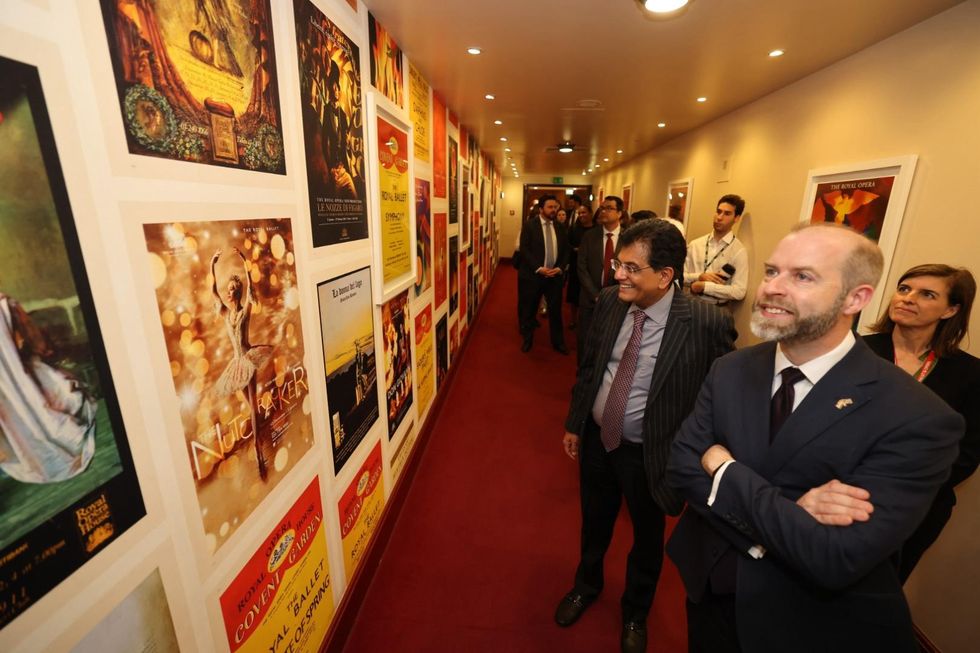by LAUREN CODLING and NADEEM BADSHAH
APOLOGISING for the Amritsar massacre would be a “reflection of the close relationship between the UK and India”, a British-Asian peer said, as Saturday (13) marks 100 years since the tragedy.
Hundreds were killed in Jallianwala Bagh, a walled area in the Sikh holy city of Amritsar, on April 13, 1919. As unarmed civilians gathered in the venue, they were slaughtered by British troops who opened fire without warning.
Britain has never offered an official apology for the incident.
Baroness Sandip Verma, a Conservative peer, told Eastern Eye that the government could mark a “turning point” by acknowledging what occurred in Amritsar in 1919.
“It was an atrocity for humankind and by recognising that, the government could do great good by saying it was a dreadful episode in the time of the British Raj,” Verma said. “I think that would be a real reflection on the sort of close relationships between India and the UK.”
Born in Amritsar in 1959, Verma grew up hearing about the massacre. She also spoke of ensuring British-Asian communities understood the history behind the atrocity as “it helps us to understand who we are”.
“[As I was born in Amritsar], it is a personal thing for me, hence I am very passionate about it,” she said. “When we talk about history, it must go further than a lens from the British side.”
Although no official apologies have ever been made, British officials have offered words of
sympathy. In 2013, then prime minister David Cameron laid a wreath at the memorial in
Amritsar and offered condolences.
In February, a debate in the House of Lords asked how the government planned to
commemorate the centenary.
Several peers, including Baroness Verma and Lord Karan Bilimoria, asked for acknowledgment that an apology would be made by the UK.
However, Baroness Annabel Goldie, speaking on behalf of the government, did not confirm any plans.
She said “the government wish to mark the centenary of Jallianwala Bagh in the most appropriate and respectful way” and would “give full consideration” to the points made by campaigners.
Referring to the debate, Verma said there was a “mutual feeling across the House” that an apology would be welcomed.
“It is time to be grown up about it and say what happened was wrong and we are sorry that it happened,” she said.
Lord Meghnad Desai, who was also part of the debate, told Eastern Eye: “There have been near apologies by the Queen when she visited Amritsar in 1998 and then Cameron a few years ago.
“An official apology would be welcome. A complication may be that survivors of victims may sue the UK government or ask for collective compensation once guilt is admitted,” the Labour peer said. “I am quite hopeful that an apology will be forthcoming.
“Unfortunately, [the government] is currently crashing due to Brexit. No other topic gets a look in.”
MPs have also echoed similar sentiments.
Labour MPs Tan Dhesi and Preet Gill, who are both Sikhs, have called on the government
to apologise.
Dhesi agreed that an apology would be “highly appropriate” if offered, while Gill urged government to work with the APPG for British Sikhs to engage with communities on the centenary.
Dhesi, who became the country’s first turbaned Sikh MP in 2017, believes not many people
in the UK were aware of the incident. However, as he told Eastern Eye, it was important that everyone knew so such an atrocity was never repeated.
“It was a crime against humanity when hundreds of people were mercilessly killed, and no British prime minister has formally apologised,” he added. “That is why some of us like-minded MPs and community organisations have called for the apology.”
Virendra Sharma, Labour MP for Ealing Southall, has also urged more awareness of the British empire and colonialism.
The politician, who has campaigned for partition to be included in the school curriculum, said he hopes the government can ensure children are able to learn the history concerning the Raj.
“British schoolchildren should learn about the moments in our country’s history that inspire both pride and shame,” he told Eastern Eye. “The Jallianwala Bagh massacre should be taught alongside the abolition of slavery as part of the creation of modern Britain.”
He has also called for authorities to erect a memorial to commemorate the anti-colonial struggle.
Gurharpal Singh is a professor of Sikh and Punjab Studies at SOAS University of London. He also believes the story of the massacre is not widely known and said it was becoming “somewhat diminished”.
The academic, who has published research on partition and religious conflict in south Asia, believes that education within some communities on British-Indian history is limited.
“Although there was some popular interest in the partition last year because of the 70th anniversary, I’m not sure the grasp among British Asians is the same as it used to be ... of main historical events,” he told Eastern Eye.
However, Singh added that events needed to be understood “in context”, such as when it happened and why.
“There is a tendency now to look at such events and then impose upon them our values today and not understand them in their proper context,” he said. “It is very important to
do that and not turn them into some kind of trauma exercise.”
On how colonial ties have shaped modern Indo-British relations, Singh believes they have contributed in various ways, including trade partnerships and the arrival of migrants.
“Those ties have emerged from the colonial past, and the relationship of language, culture and politics have stemmed as a result,” he said.
Among remembrance events around the centenary is an exhibition curated by Manchester Museum and the Partition Museum in Amritsar, which will run in both cities. Jallianwala Bagh 1919-2019: Punjab under Siege will end on October 2, which marks 150 years since Mahatma Gandhi’s birth.
British-Indian author Saurav Dutt has published a new book based on the Jallianwala Bagh massacre. He researched Garden of Bullets for two years, analysing documents and books written by scholars along with interviews with academics and museum staff.
Dutt said: “It is time the UK government acknowledges this crime and there cannot be a more appropriate time than the centenary to do this.
“An apology achieves a sense of recognition, framing this dark chapter within the overall
context of colonial rule and imperialism. It codifies the horror of this event for posterity and allows future generations to recognise its significance.”
















 Piyush Goyal and Jonathan Reynolds tour the Royal Opera House in London
Piyush Goyal and Jonathan Reynolds tour the Royal Opera House in London

